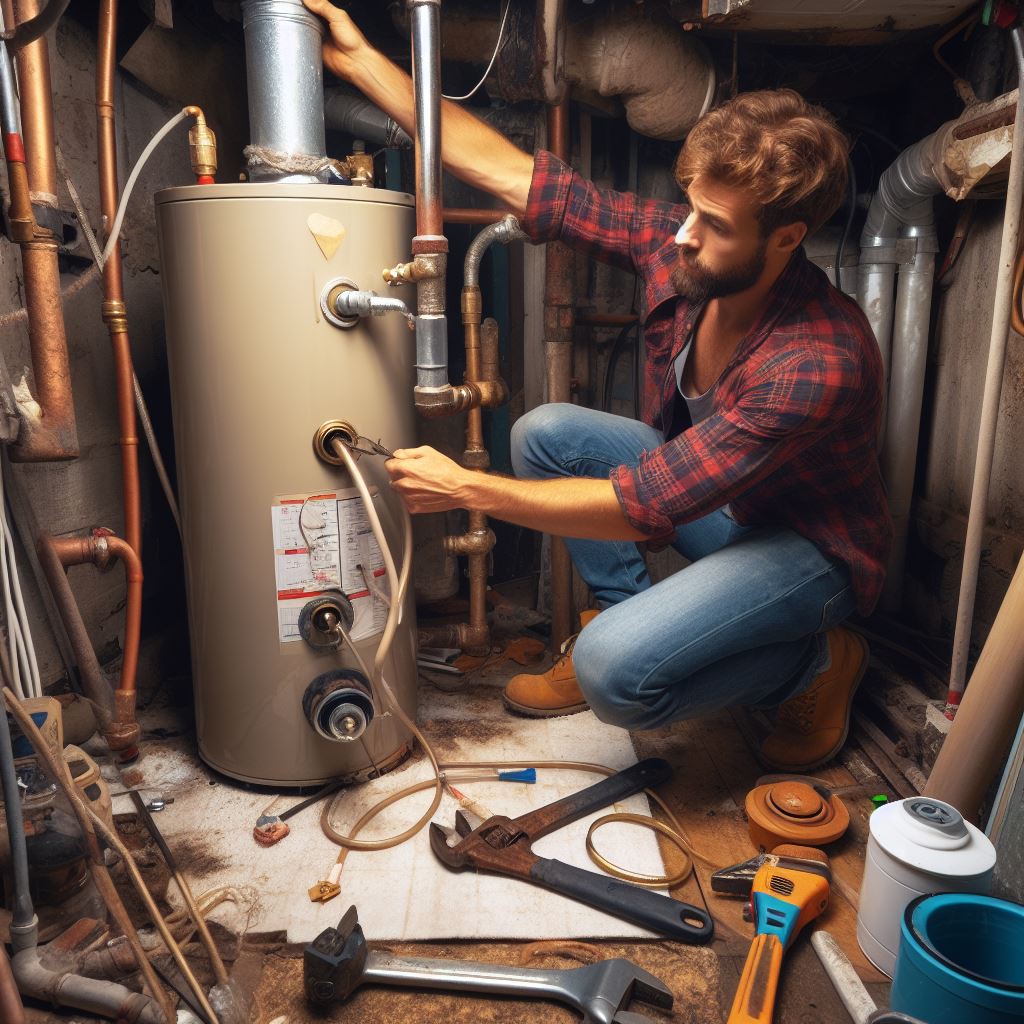Introduction
Imagine stepping into your shower on a chilly morning, eagerly anticipating the warmth of hot water, only to be greeted by an icy blast. If you’ve experienced this, it’s likely that your water heater is sending you a clear signal: it’s time for a replacement. While the thought of replacing a water heater might seem daunting, knowing what to expect can ease the process. In this blog, we’ll guide you through the key steps and considerations when replacing your water heater, helping you ensure a seamless transition to a consistent supply of hot water.
Assessment and Choosing the Right Heater
The first step in replacing a water heater is assessing your needs and choosing the right type of heater. There are various options, including tankless, tank-style, and heat pump water heaters. Consider factors like your household’s hot water demand, available space, energy efficiency, and budget. Consulting with a professional plumber can help you make an informed decision.
Budgeting
Replacing a water heater is an investment in your home’s comfort and efficiency. Be prepared to budget not only for the cost of the new heater but also for installation, permits, and potential upgrades to your plumbing system. Keep in mind that opting for a more energy-efficient unit can lead to long-term savings on utility bills.
Professional Installation
Water heater installation is not a DIY project. It’s crucial to hire a licensed and experienced plumber or contractor to install the new heater. They will ensure that the unit is properly connected to gas or electricity, vented correctly, and meets all local building codes.
Permits and Regulations
Depending on your location and the type of water heater you’re installing, you may need permits and must comply with local regulations. Your plumber can assist with obtaining the necessary permits and ensuring your installation adheres to all codes and safety standards.
Old Heater Removal
The old water heater must be safely disconnected, drained, and removed from your property. This process can be messy, but professionals will handle it efficiently. Ensure that the old unit is disposed of or recycled properly in accordance with local regulations.
Safety Considerations
Safety is paramount when dealing with water heaters. Gas water heaters require careful handling of gas lines, while electric ones involve electrical connections. A professional installer will prioritize safety throughout the installation process.
Warranty and Maintenance
Most new water heaters come with warranties. Be sure to keep the warranty information and schedule regular maintenance to extend the lifespan of your unit. Flushing the tank periodically, checking for leaks, and inspecting the pressure relief valve are essential maintenance tasks.
Energy Efficiency
If you’re upgrading your water heater for improved efficiency, you can expect lower energy bills. Energy-efficient models may qualify for rebates or tax incentives, making your investment even more cost-effective.
Once the new water heater is installed, you can look forward to a consistent supply of hot water. You’ll no longer need to worry about cold showers or running out of hot water during household tasks like laundry and dishwashing.
Conclusion
Replacing a water heater might seem like a daunting task, but with proper planning and professional assistance, it can be a smooth and rewarding experience. From selecting the right heater to ensuring safety and compliance, each step plays a crucial role in providing your home with reliable hot water for years to come. By understanding what to expect during the process, you’ll be well-prepared to make informed decisions and enjoy the comforts of a well-functioning water heating system.

